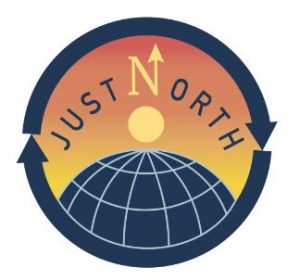Both policymakers and the technology industry need to do more to combat the ever-growing demand for data and its associated energy impacts. In this study, based on novel corporate data, expert interviews, focus groups with members of the public, extensive site visits across Greenland, Iceland and Norway and a literature review, we look at the energy and climate impacts of existing and proposed datacenters, both quantitatively and in terms of stakeholder and public perceptions.
Sovacool, Monyei & Upham
Both policymakers and the technology industry need to do more to combat the ever-growing demand for data and its associated energy impacts. In this study, based on novel corporate data, expert interviews, focus groups with members of the public, extensive site visits across Greenland, Iceland, and Norway, and a literature review, we look at the energy and climate impacts of existing and proposed datacenters, both quantitatively and in terms of stakeholder and public perceptions. The paper examines datacenter management and sustainability practices in the Nordic region. It explores what community impacts occur, and how communities manage conflicting objectives. It investigates the technical and policy options that can make datacenters more sustainable and/or lower-carbon and it explores associated stakeholder and public views in the three countries. In exploring these themes, our study examines the shifting energy governance of datacenters, including patterns of electricity consumption and cooling but also circular economy operations and power densities. We also analyze a series of 40 solutions for eco-friendly design or green datacenter management across the entire lifecycle. We conclude with implications for energy and climate policy as well as future research.
Read the full article:
https://www.sciencedirect.com/science/article/pii/S1364032121010625
JUSTNORTH
JUSTNORTH is a project designed to explore the multitude of ethical systems that coexist in the Arctic, as a starting point to assess the viability of new economic activities in the region. For the millions of people who live both inside and outside the Arctic and are affected by these economic activities, decisions are made through utilitarian ethical principles: viability of an activity is based on profitability and technical feasibility, with little regard to questions of whether it is ethically right or wrong for the impacted human populations or the environment. Global climate change has launched intense speculation on Arctic resources. Increasing geopolitical tensions among some of the Arctic states increases the importance of respecting different value systems while finding common values to help strengthen the links between Arctic and non-Arctic entities. Significant practice and policy gaps in existing Arctic economic activities have led to development that is unsustainable.
Through understanding current practices of development in the Arctic through the lens of 18 case studies, JUSTNORTH aims to develop conceptual frameworks, indices and a negotiation tool, for reconciling multiple ethics and value systems. These will provide a cornerstone for determining the viability of economic activities in the Arctic, as well as clarify policy, legal, and regulatory pathways for implementing ethic-based decision-making principles.
Global climate change has launched intense speculation on Arctic resources. Increasing geopolitical tensions among some of the Arctic states increases the importance of respecting different value systems while finding common values to help strengthen the links between Arctic and non-Arctic entities. Significant practice and policy gaps in existing Arctic economic activities have led to development that is unsustainable.
Through understanding current practices of development in the Arctic through the lens of 18 case studies, JUSTNORTH aims to develop conceptual frameworks, indices and a negotiation tool, for reconciling multiple ethics and value systems. These will provide a cornerstone for determining the viability of economic activities in the Arctic, as well as clarify policy, legal, and regulatory pathways for implementing ethic-based decision-making principles.
Project details
- Project title: “Toward Just, Ethical and Sustainable Arctic Economies, Environments and Societies”
- Funding scheme: European Union Horizon 2020 Programme (EU H2020, Grant agreement ID: 869327)
- Duration: 3 years (1 June 2020 – 30 November 2023)
- Project coordinator: Uppsala Universitet, Dr. Corine Wood-Donnelly
- Project website: www.justnorth.eu/
